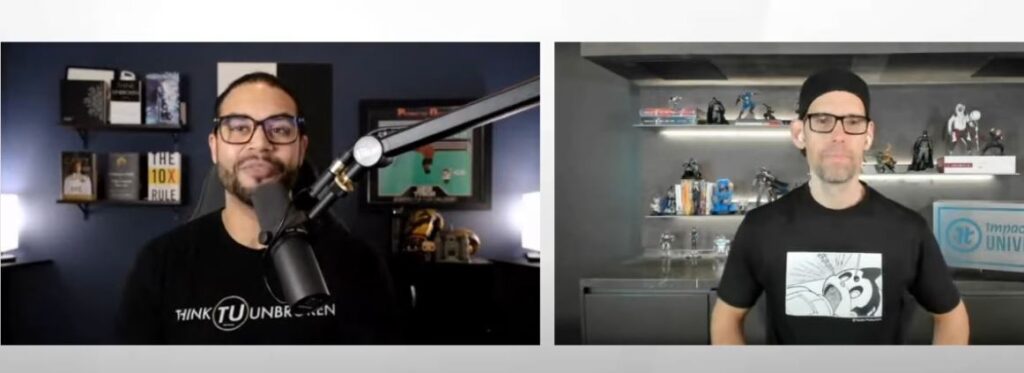
Think Unbroken, Michael Unbroken’s podcast, is more than just a forum for talking about mental health; it’s a dynamic dialogue that has changed the way trauma survivors see themselves. Though his episodes have the gravity of scientific panels where neuroscientists and therapists share practical insights, they feel remarkably similar to sincere confessions you might overhear at a quiet café. This combination of unvarnished honesty and expert advice produces a tone that is incredibly powerful in reaching people who frequently feel invisible.
Michael himself speaks to the audience, and he doesn’t hold back when discussing his own darkest years: addiction, obesity, and destructive cycles that seemed unbreakable. However, he explains how conscious, minor decisions led to profound changes. His observations seem incredibly clear, providing a path that many people can follow to heal themselves. In a field that frequently glamorizes recovery rather than examining its rough edges, this candor is especially novel.
Podcast Information Table
| Podcast Title | THINK UNBROKEN |
|---|---|
| Host | Michael Unbroken (Michael Anthony) |
| Years Active | 2019 – Present |
| Episodes | 739+ |
| Category | Trauma Recovery, Mental Health, Self-Improvement |
| Focus | Childhood Trauma, CPTSD, PTSD, Abuse Recovery, Resilience |
| Format | Solo coaching sessions and interviews with experts |
| Book | Think Unbroken: Understanding and Overcoming Childhood Trauma |
| Community | Unbroken Nation – global support network for survivors |
| Courses | Trauma Transformation Course (coaching.thinkunbroken.com) |
| Official Website | https://www.thinkunbrokenpodcast.com |
In episodes such as How to Find Love as a Trauma Survivor, sabotage patterns originating from childhood abuse are highlighted, and Michael’s readiness to own up to his mistakes strikes a deep chord. The bravery of public personalities who have publicly discussed their struggles, such as Prince Harry and Demi Lovato, is reflected in that vulnerability. The podcast places intensely personal suffering within a larger social conversation about identity and resiliency by highlighting these similarities.
Michael broadens the discussion beyond narrative to include scientific topics with episodes that include professionals like Dr. Ken Adolph, who talked about the possibilities of ketamine therapy. Psychedelic therapy and trauma healing have become increasingly popular around the world, and his platform is very flexible in converting those difficult concepts into simple terms. His method seems very effective to listeners who are not familiar with clinical research, condensing important ideas into easily understood guidance that can be put into practice right away.
Despite its seemingly straightforward tone, Michael’s belief that “the work works if you do the work” is based on actual experience. The Unbroken Nation, his community, thrives because it places a strong emphasis on active participation. Survivors share their successes and failures during live coaching sessions, fostering a supportive environment that is incredibly resilient. When contrasted with the trauma of isolation that survivors frequently experience, that sense of community is especially helpful in lowering feelings of abandonment.
Does Feeling Lucky End Depression? is one such episode. Examine how recovery trajectories can be changed by mindset alone. Michael demonstrates how having faith in luck can turn hardship into opportunity by sharing stories of fortuitous encounters with people like Gary Vaynerchuk. The episode emphasizes that sometimes the stories we tell ourselves are more important for improving mental health than large-scale interventions. Compared to conventional tales of fate or chance, his view of luck as a chosen mindset is noticeably superior and provides listeners with a useful tool for self-motivation.
This podcast’s influence on more general cultural discussions is evident. Similar to how Brené Brown popularized the term “vulnerability” in the business world, Michael Unbroken has infused everyday speech with trauma-informed language. His tales serve as a reminder that healing is a journey that can be attained and is not a luxury that only the wealthy can afford. He gives survivors agency by putting them at the center of their stories, converting passive endurance into active development.
The accessibility of Think Unbroken is yet another noteworthy feature. The lessons are surprisingly inexpensive for anyone looking for direction and are accessible on Spotify, Apple Podcasts, and other free platforms. When paired with his book and coaching classes, the ecosystem of resources transforms from a collection of discussions into a thorough journey. This model’s scalability is especially creative, reflecting how websites like Calm or Headspace transformed meditation for large audiences.
Michael’s refusal to hide the messiness of his journey is what sets him apart from other wellness influencers. He acknowledged exhaustion, heartache, and the desire to completely distance himself when recording What Happened to Me and the Podcast. His credibility was strengthened by that moment of candor, demonstrating his exceptional dependability in both success and adversity. It serves as a reminder that even leaders make mistakes and that healing is cyclical rather than linear.
The podcast’s narrative approach is similar to the format of Hollywood’s hero’s journey, in which the protagonist faces challenges, finds mentors, and comes out of the experience changed. The listener is the hero in this situation. Each audience member is positioned as having the ability to rewrite their story thanks to Michael’s narrative guidance and his interviews with coaches and therapists. Many listeners’ capacity to face their trauma shame-free has significantly improved as a result of that empowering frame.
There is no denying the resonance for society as a whole. A cultural shift is indicated by the rise of trauma-informed content, such as Lady Gaga’s Born This Way Foundation and documentaries about abuse and recovery. Michael Unbroken contributes to that momentum by offering a voice that is both personal and professionally anchored. The importance is found in the way he normalizes discussions that were previously suppressed and makes them available to all age groups.
Michael has already created an archive of bravery, tactics, and firsthand accounts with over 700 episodes. By demonstrating that survivors are not defined by their past, his work has greatly lessened the stigma associated with CPTSD. Rather, they can use it as a catalyst for change. For younger audiences dealing with generational trauma, that message is especially helpful because it provides a blueprint that is both realistic and incredibly hopeful.
Think Unbroken’s influence on the public conversation about trauma will only increase as it grows through books, classes, and community gatherings. The unique combination of tough love and compassion in Michael’s coaching style encourages listeners to take responsibility while simultaneously reassuring them that they are not alone. Long-term change is remarkably effectively encouraged by this balance.
